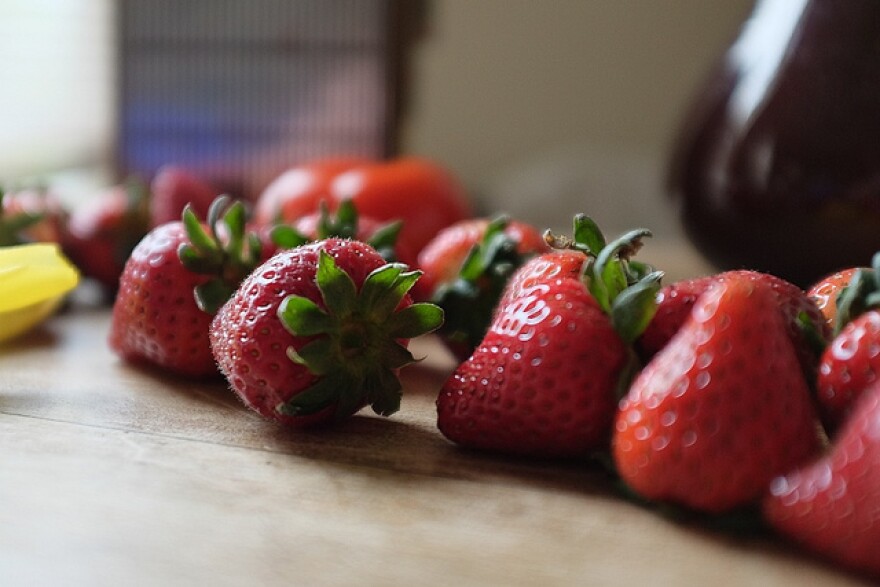This summer the largest organic strawberry grower in the country has pledged to grow all of its baby plants organically. Strawberry seedlings — even organic ones — can be cultivated in soil that's been chemically fumigated.
Until recently all of the state's organic strawberry seedlings started "conventionally" in Northern California.
"The way these starts are grown are they're grown with these fumigant pesticides that are meant to kill things off in the soil up to hundreds of pounds per acre can be applied near communities, near workers that can be exposed to these cancer causing chemicals,” says Paul Towers with the Pesticide Action Network.
There's an allowance in the federal organic standards to use conventionally grown baby plants as organic starters "Only when the farmer cannot find that variety in an organic form,” says Nate Lewis, a crops specialist with the Organic Trade Association.
He says there hasn't been a single organic strawberry nursery in California until now.
Driscoll's — based in Watsonville — has pledged it will nurture all its starts in organic soil.
Traditionally when conventionally grown seedlings are hearty enough they're shipped south to Monterey or Santa Cruz counties where they grow up on organic farms. They're labeled certified organic.
Lewis says Driscoll's pledge could lead to an industry wide shift.
“Where we'll start seeing more planting stock being produced organically in a variety of other more perennial crops, like tree fruit and other berries," he says.
Lewis says even without the change consumers shouldn't be concerned. Fumigants are applied to the soil not the plants. In other words, you won't ingest the chemicals by eating the berries. The hazards are to farm workers and people nearby who might be exposed to the drifting gas.
This story was produced by Capital Public Radio.


